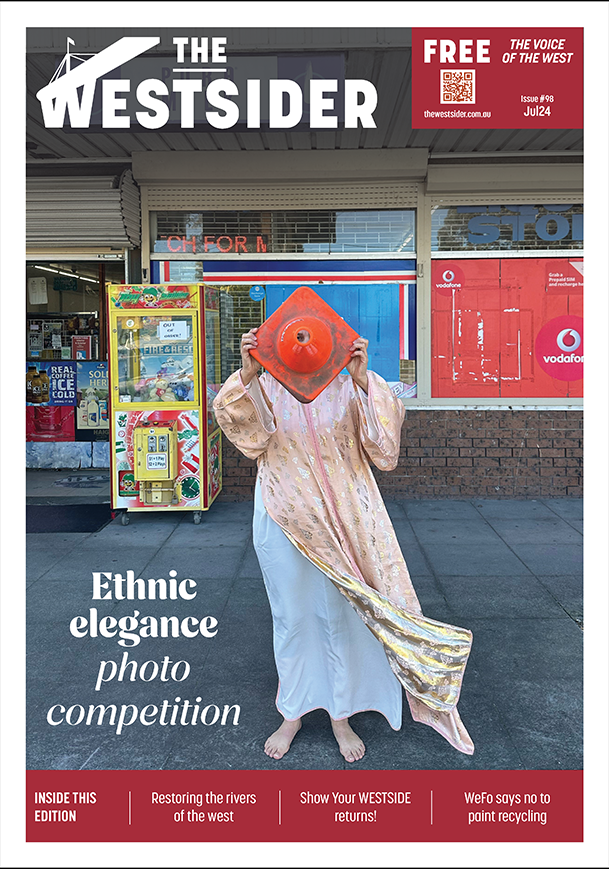By Jack Langdon, Tess McCracken, Matthew Slocum
An increasing number of older Australians are experiencing ‘elder abuse’ and support services are struggling to cope. Here in the western suburbs the situation is dire.
According to the Crime Statistics Agency there’s been a 40 percent increase in elder abuse victims over the age of 65 in the past five years, with Victoria reporting more than 5,700 cases in just one year.
Senior Rights Victoria is the key support service working to prevent elder abuse in the state. Their elder abuse helpline has just one staff member yet the Victorian Government cut their funding by $1million in the 2023/24 state budget .
CEO of Senior Rights Victoria, Chris Potaris says they’re already finding it difficult to meet the demand for their services with a 39% increase on calls to their helpline in a 12 month period.
‘We received 985 calls in the first quarter of 2022 as compared to 1,371 calls in the first quarter of 2023,’ he says. ‘We already cannot meet the current level of demand from the community, and further pressure will have real-world impacts on some of the most vulnerable older people in our community.’
Senior Rights Victoria says wait times have already blown out to six weeks for a response.
Elder abuse is defined by the World Health Organisation as ‘a single or repeated act or lack of appropriate action occurring within any relationship where there is an expectation of trust, leading to harm or distress to an older person.’
In response to the Royal Commission into Family Violence tabled in 2016, the state government established a network of ten elder abuse prevention services, with just one dedicated to the western suburbs of Melbourne. Many of the services are conducted online or over the phone making it even more difficult for non-English speakers and the digitally challenged.
According to the 2016 Census, 15 percent of the population in Melbourne’s west is aged 65 and older, and this demographic is expected to double over the next 25 years. The region is also culturally diverse with nearly half of the households home to non-English-speaking residents. A shortage of non-English-speaking personnel operating crisis hotlines presents a significant challenge.
Hayat Doughan, Ageing Well Coordinator for The Ethnic Community Council of Victoria (ECCV), concurs that the reporting of elder abuse among multicultural communities is complicated.
‘The barriers are huge. You have the language barrier and now to add on top of this, the digital literacy barrier.
‘You tell people you have the right, you tell people there is support, and when they seek support, it’s not available. It’s very disappointing,’ Doughan says.
Doughan says there is also a significant amount of ‘victim shame’ in multicultural communities, and many people don’t want to discuss their issues.
She says there’s a fear that they could be sent to aged care, ‘which is the last thing they want, people want to be with their family.’
Earlier this year the African Think Tank (ATT), which advocates for African-Australian communities in Victoria, released the findings of a report it commissioned exploring anti-racism in the aged-care sector. Its findings demonstrate significant gaps in the availability and accessibility of culturally appropriate aged care services for African Australian seniors.
The research shows African Australians, and other culturally and linguistically diverse (CALD) elders are unaware of their rights or available services to enable positive ageing which supports caring for elders at home. The research also shows a pattern of African Australian seniors facing language and network barriers which creates a fear of engaging with the services available. This is exacerbated when there is no trusted access to these services through connected CALD community groups and networks.
Further reinforcing these barriers are reports of culturally inappropriate behaviours and reporting mechanisms within aged care services for CALD or African Australians.
Chair of the ATT Dr Berhan Ahmed says both the community and aged care service providers have a role to play in the current challenge to provide ‘positive ageing’ for everyone.
‘These anti-racism findings are in fact parallel for both the aged care service providers, and African Australians, and all CALD Victorians,’ he says. ‘The research highlights the need to develop a Guide to assist both consumers and aged care service providers.’

